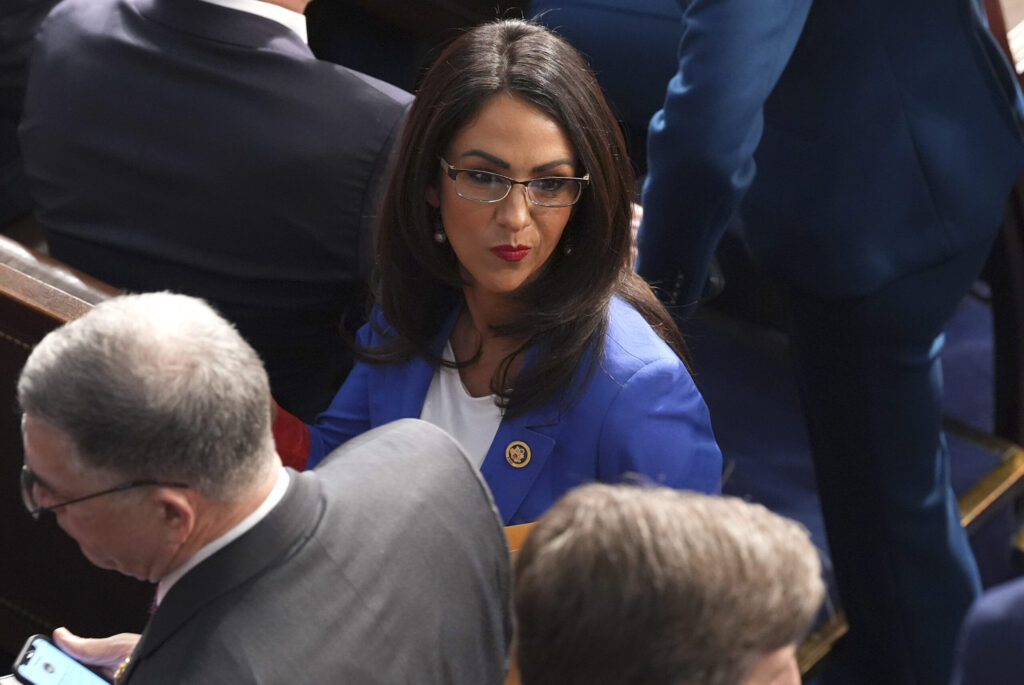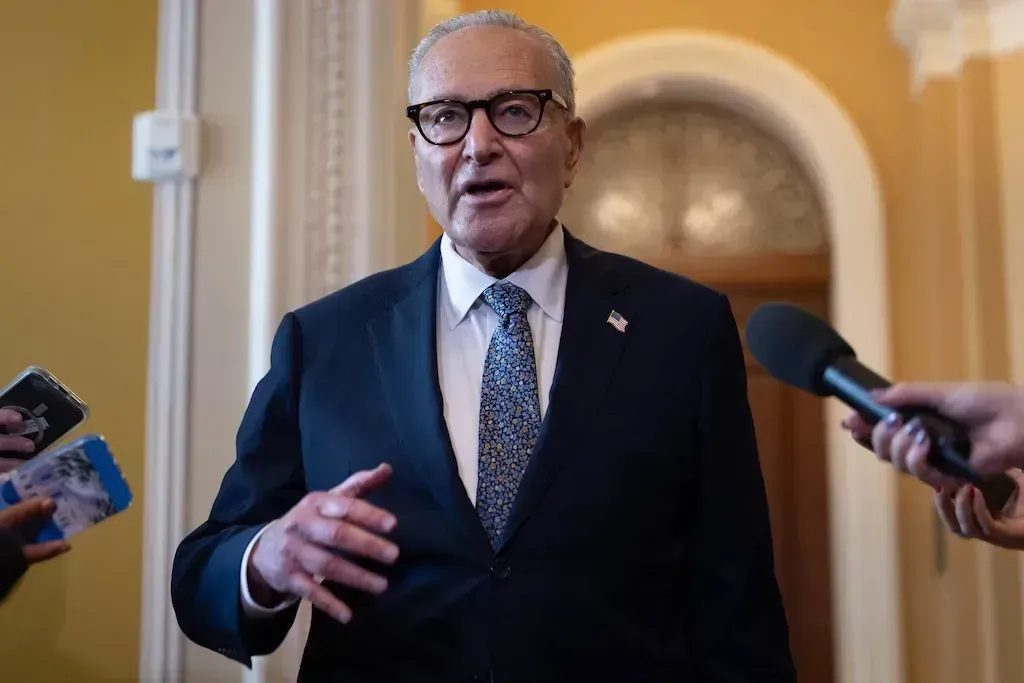NumbersUSA advocates for Colorado E-Verify mandate to reduce illegal immigration
An organization that seeks to reduce legal and illegal immigration is pushing for a nationwide mandate of a Department of Homeland Security-developed software designed to verify employee’s legal eligibility to work in the United States.
Several polls indicate that immigration is a top issue for voters heading into the 2024 election, especially in cities like Denver, which has seen over 40,000 migrants arrive over the past year.
E-Verify: “A government success story”
Andrew Good, Director of State Government Relations at NumbersUSA, argues that mandating E-Verify for all employers is the most effective policy a state can adopt to reduce illegal immigration.
He hailed the system as “a government success story.” He noted that four states have introduced related legislation in the past year: both Iowa and West Virginia had E-Verify mandate legislation pass through one chamber before dying on the calendar this session. However, he believes similar legislation in Ohio will be signed into law. Arizona, which has one of the strictest E-Verify mandates in the country, is hoping to extend its requirements through a ballot initiative further this November.
While the Employment Eligibility Verification form, more commonly known as the I-9, is mandatory for all employees hired in the United States, Good argues that it isn’t as effective as E-Verify because there is no enforcement behind it. Although employees must present two forms of identification from an approved list to prove they can legally work in the U.S., Good contends that employers have no strong incentive to verify that the documents are legitimate.
“It’s almost riskier for the employer to question the information presented to them, because they could get themselves in legal troubles if it’s made to look like they were doing so out of bad faith,” he said. “So, anything that looks like it could remotely plausibly be an identification document, the employer is definitely going to accept it, and then nobody else checks. It’s just a piece of paper that goes in a file cabinet that nobody looks at. With that level of enforcement, it’s a system that’s designed to fail.”
Building on the I-9 process, E-Verify electronically cross-checks an employee’s name, date of birth, and social security number and document information against records in the Social Security Administration and Department of Homeland Security’s online databases.
In 2006, Colorado passed legislation requiring state agencies and contractors to use E-Verify. The law also prohibits government agencies from entering contracts that knowingly employ illegal immigrants.
Good argues that E-Verify makes sense from both a legal and economic standpoint. It only applies to new hires rather than current employees, meaning there wouldn’t be any massive reductions in the workforce if it were required across the board. Furthermore, decreasing the number of unauthorized workers can help reduce instances of abuse, which is unfortunately all too common.
“When you have illegal employment and illegal presence, you are inevitably going to have abuse,” he said. “Abuse by the employers and by bad actors in the community.”
While Good maintains that E-Verify mandates will improve things, the system has received criticism in the past from advocates who argue that it can discriminate against immigrants and minorities, raise privacy concerns, and fail to address the root causes of unauthorized employment. Critics also highlight the potential for inaccuracies in government databases, which could mistakenly classify eligible employees as ineligible or vice versa.
Immigration in Colorado
Over the past 17 months, the City of Denver has invested millions of dollars to manage a surge of over 42,000 immigrants, mainly from Central and South America. In 2023, Denver received more immigrants per capita than any other city nationwide. Seven hotels were converted into emergency shelters to accommodate those without housing, but the last of these shelters was closed in early July, leaving hundreds of families without a place to stay.
Last April, Mayor Mike Johnston introduced an updated version of Denver’s “newcomer program,” a $90 million initiative that offers asylum seekers apartments, job training, food assistance, and other resources for up to six months.
Good said Colorado is “not the worst” regarding immigration policy, highlighting other cities that have seen significant immigration influx, such as Chicago and New York.
During the last legislative session in Colorado, NumbersUSA officially opposed Senate Bill 182, which facilitates access to driver’s licenses and identification cards for undocumented immigrants; House Bill 1286, which creates the Equal Justice Authority to manage and distribute court filing fees to support legal aid for low-income individuals; and Senate Bill 034, which broadens the definition of school-based health centers for grant eligibility. The organization also took a “monitor” position on House Bill 1350, which updates court procedures for child custody cases by enhancing reporting requirements and training for child and family investigators and parental responsibilities evaluators. All four bills were signed into law.
Although NumbersUSA advocates on behalf of both federal and state policies, Good said the organization has recently increased its focus on state-level issues.
“We wanted to have a bigger focus on states because there has been a lot of gridlock in DC; not that there’s not been action, but the states have a lot that they can do,” he said. “In the last few years with the current border situation, a lot of states are looking around and trying to figure out how they should respond.”
Good emphasized that while each state has the authority to address immigration as it sees fit, legislators should prioritize listening to voters’ voices in whatever approach they take.
“The question is whether you want to be like Florida where you’re actively trying to discourage illegal presence, or whether you want to kind of manage it,” he said. “If people are more or less satisfied with life in general where they are, they you could skate by with that. It’s really a question of what the voters are willing to put up with. Because if the voters don’t put their foot down, the people making the decisions will pretty much inevitably take more migration because it benefits some of their favorite powerful interests.”
A native of Highlands Ranch, Good knows first-hand how influential ballot initiatives can be in shaping policy in Colorado.
He suggested that Colorado would be a potentially very ripe state to try an E-Verify ballot initiative. Colorado could easily put that question to the voters and see how they feel about illegal employment.
When asked about balancing the legal and logistical challenges of illegal immigration with the humanitarian need to respect all individuals regardless of their legal status or nationality, Good expressed optimism that a middle ground could be achieved with the right approach.
“Instead of going towards the top of the mountain, you’re trying to go towards the bottom of the mountain, but relatively slowly, in a controlled way,” he explained. “The fact that we’re talking about mass deportations and that polling suggests a strong majority of people are starting to favor that… you don’t want to actually get to this point. There were a lot of good options in the toolbox before we got to that point.”
“An immigration election”
Through various polls and talking points among the political parties, immigration is a leading issue for voters in the upcoming Presidential election.
“Immigration has never been the number one issue,” said Good. “In an election year, to have it pop up as number one on some of these polls is really startling and concerning, because that’s a really bad situation to be in.”
With two completely different candidates and two completely different approaches to immigration, the future of immigration policy remains uncertain until the next President is in office. However, Good speculates that under a Kamala Harris presidency, immigration policies similar to those of the Joe Biden administration, such as immigration parole—allowing certain non-citizens from high-immigration areas to live in the U.S. temporarily if they meet criteria like having a sponsor and passing background checks—are likely to continue.
Suppose former President Donald Trump wins a second term. In that case, Good expects him to reinstate his “Remain in Mexico” policy, end Biden’s parole policy, and resume construction on the border fence, all of which Good says “will be a game-changer overnight” on immigration to the United States.
Good agrees that 2024 is undoubtedly an “immigration election.” Still, ever since the assassination attempt on Trump, he’s unsure if immigration is at the forefront of voters’ minds the way it had been.
“I think it’s really hard to tell what the voters will be looking at when they actually fill out their ballot,” he concluded. “Is it possible that other issues pop up? Absolutely. So it’s hard to say where immigration will be on the totem pole, just because other things can overtake it, not because it gets less salient, but because other big things happen.”











